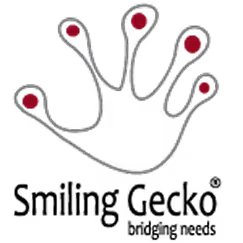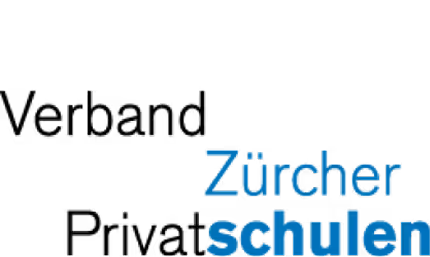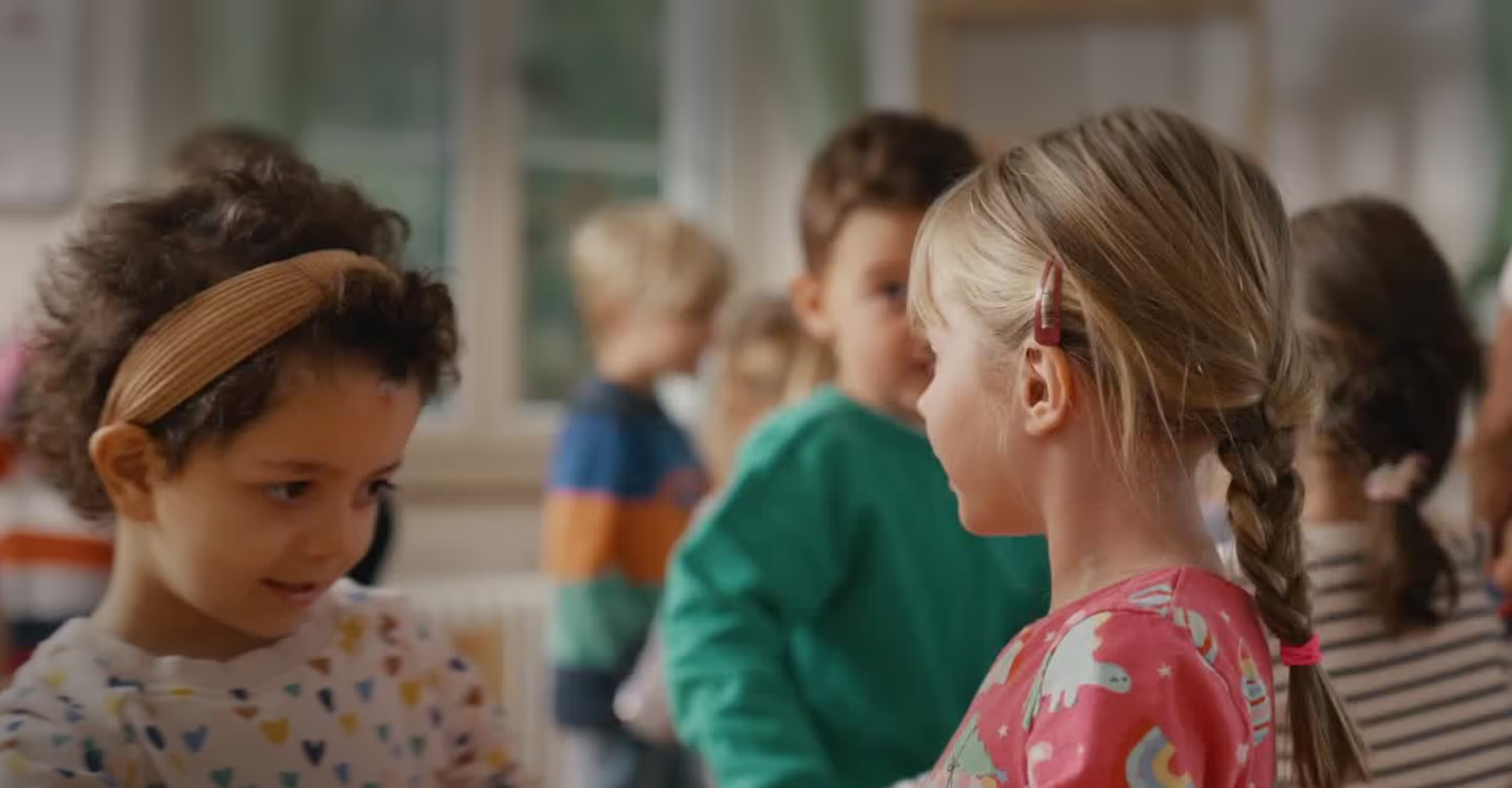
A warm welcome from our Early Years Principal
Seeing the growth of ouryoungest learners is a true privilege. This is where it all begins! In my role as Early Years Principal, I strive to support our teachers as they create the best possible learning environment for our students to thrive. Our youngest learners will graduate from school in the most distant future. The social skills that they develop, the letters that they begin to understand and the spark of curiosity that is ignited will stay with them for life. I am delighted to welcome you to our world of Early Years and look forward to meeting you in person.
Jane McTigue
Early Years Principal
.avif)
Why choose a bilingual early years programme?
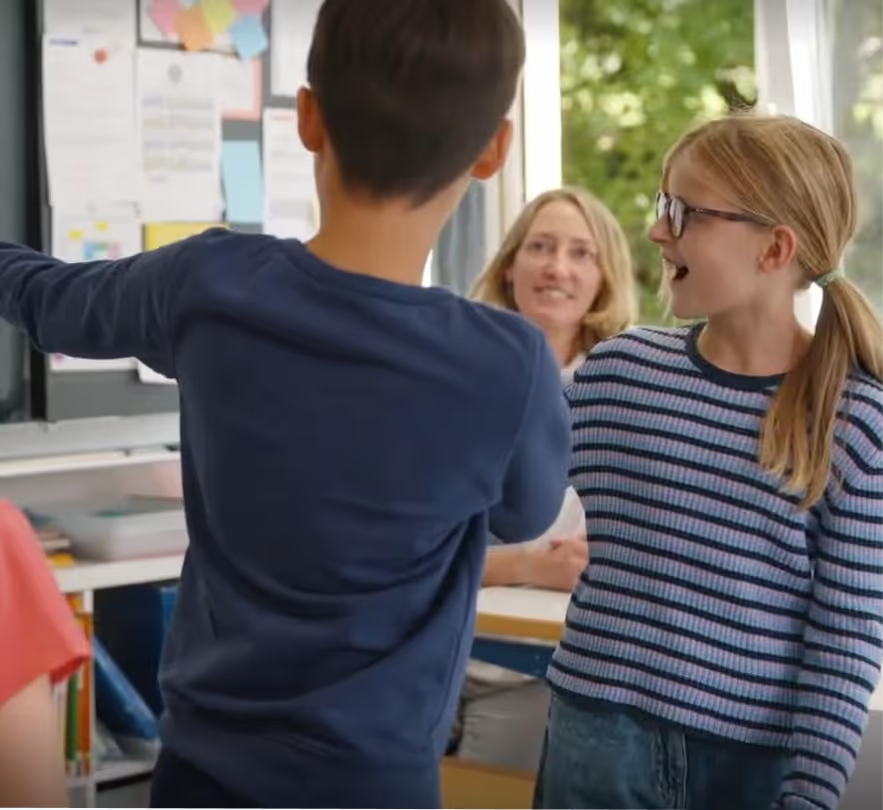
.svg)
Your child experiences both English and German already in kindergarten.

.svg)
Playing and learning do not contradict but complement each other at this age. We place great emphasis on having fun while learning.
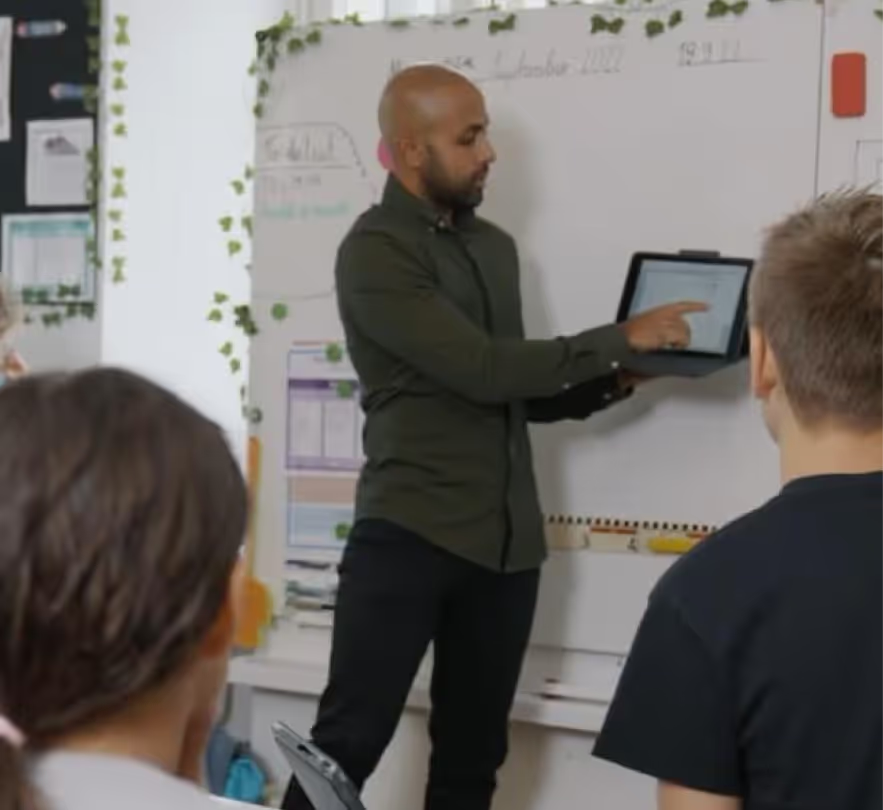
.svg)
Our kindergarten teachers are native German or English speakers.
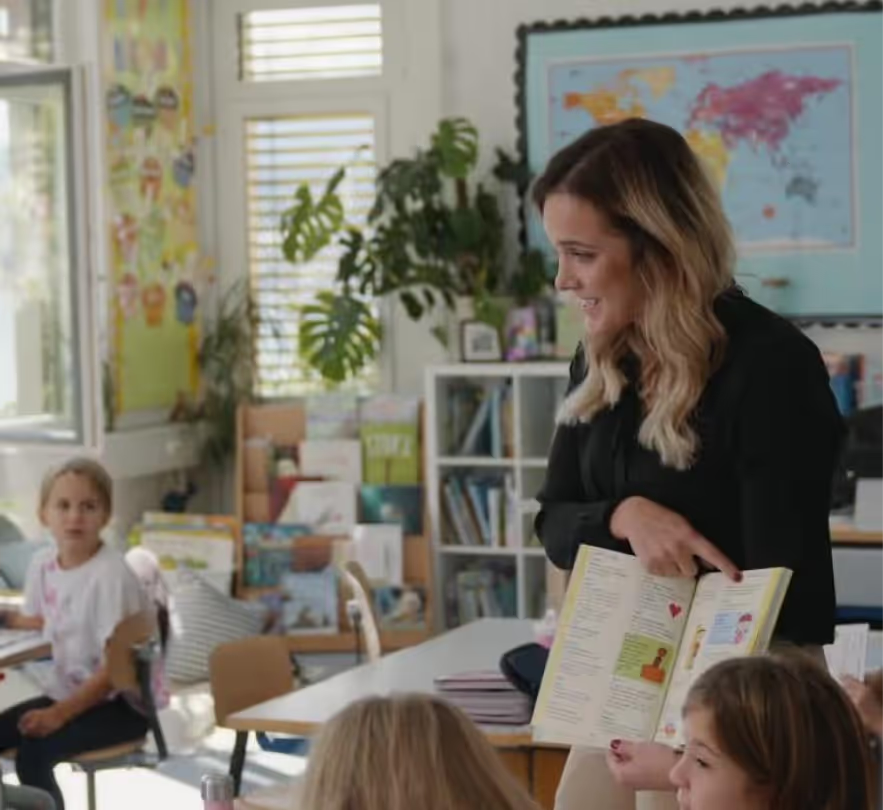
.svg)
We treat every child as an individual and support it in its wellbeing and development.

Pre-Kindergarten
Our pre-kindergarten offers a nurturing environment where your child feels comfortable and acquires practical skills for life. We introduce all aspects of our unique bilingual curriculum in an age-appropriate manner and promote your child’s healthy development of mind and body. Highly qualified native German and English teachers incorporate all senses into versatile activities to help your child acquire the other language in a playful manner.
Kindergarten
Through structured, multisensory learning, we build foundational skills that enable children in Grade 1 to master the demanding process of learning to read and write in two languages. Our native German- and English-speaking kindergarten teachers use a wide variety of methods, ranging from structured tasks to open, exploratory learning opportunities. Admission to kindergarten is possible at any point during the school year, provided a place is available. We recommend inquiring early about our waiting lists. Children who turn four before 31 July enter kindergarten Year 1. Children who turn five before 31 July enter kindergarten Year 2.
.avif)
Early Years at a Glance

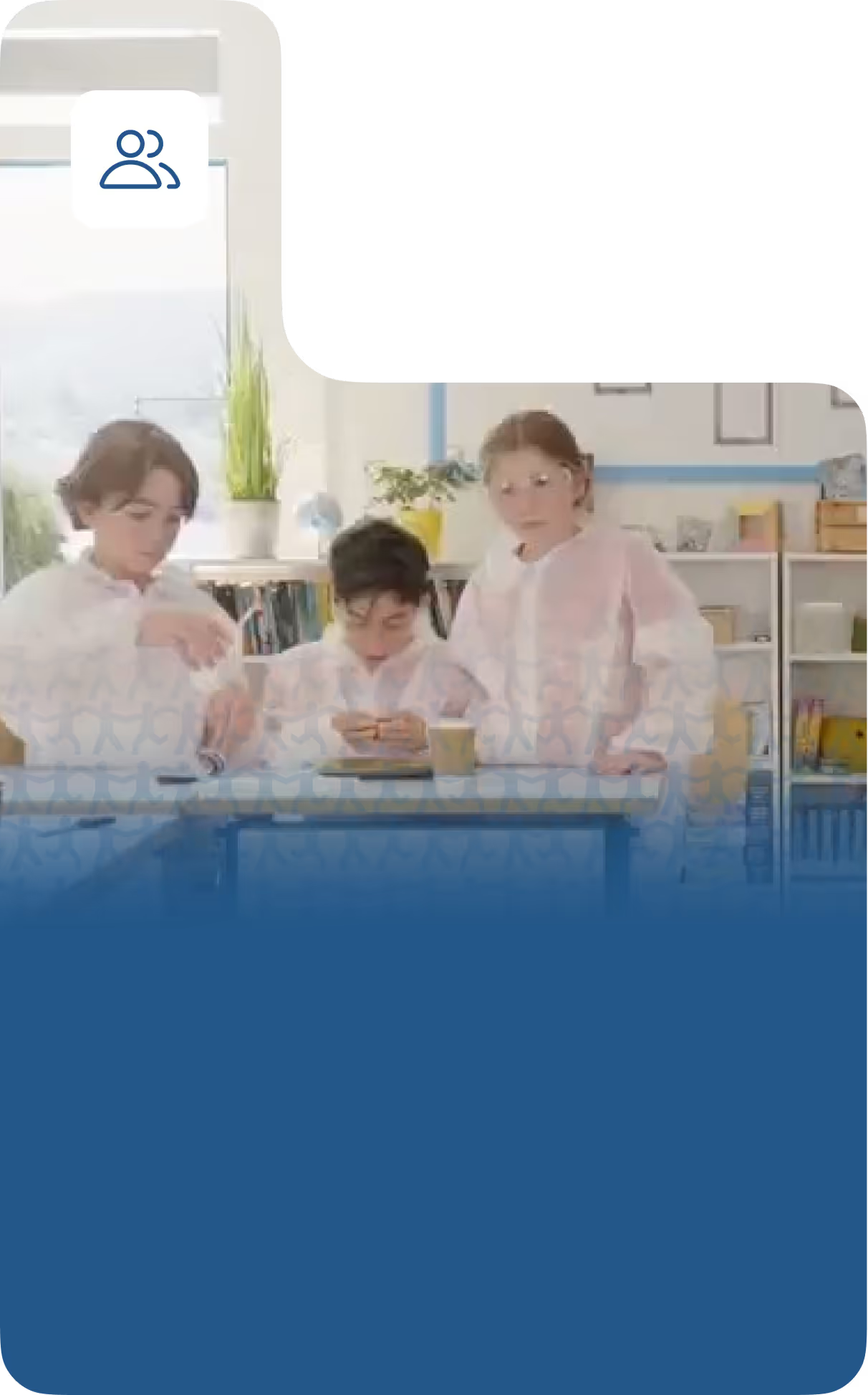
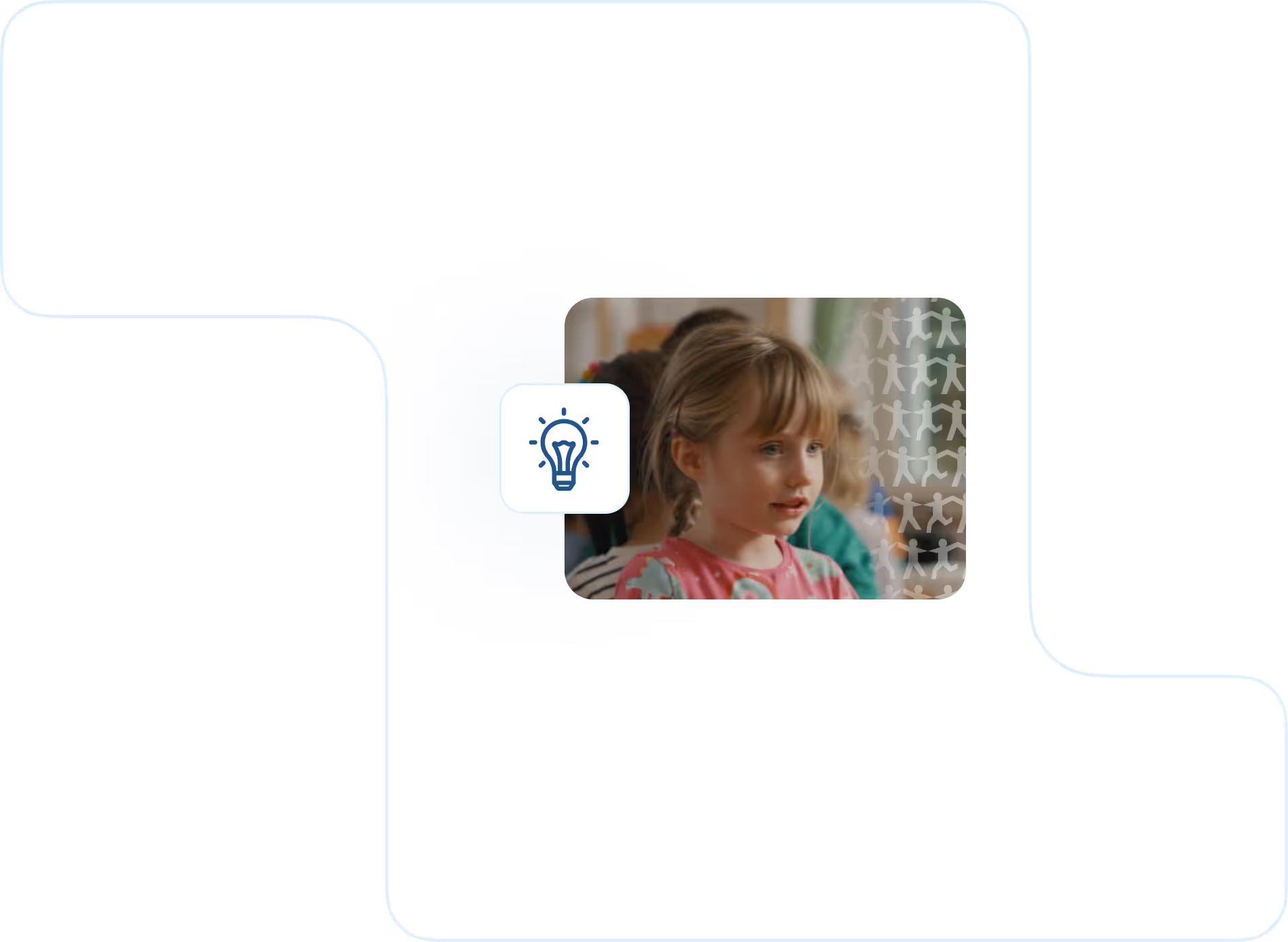

.avif)
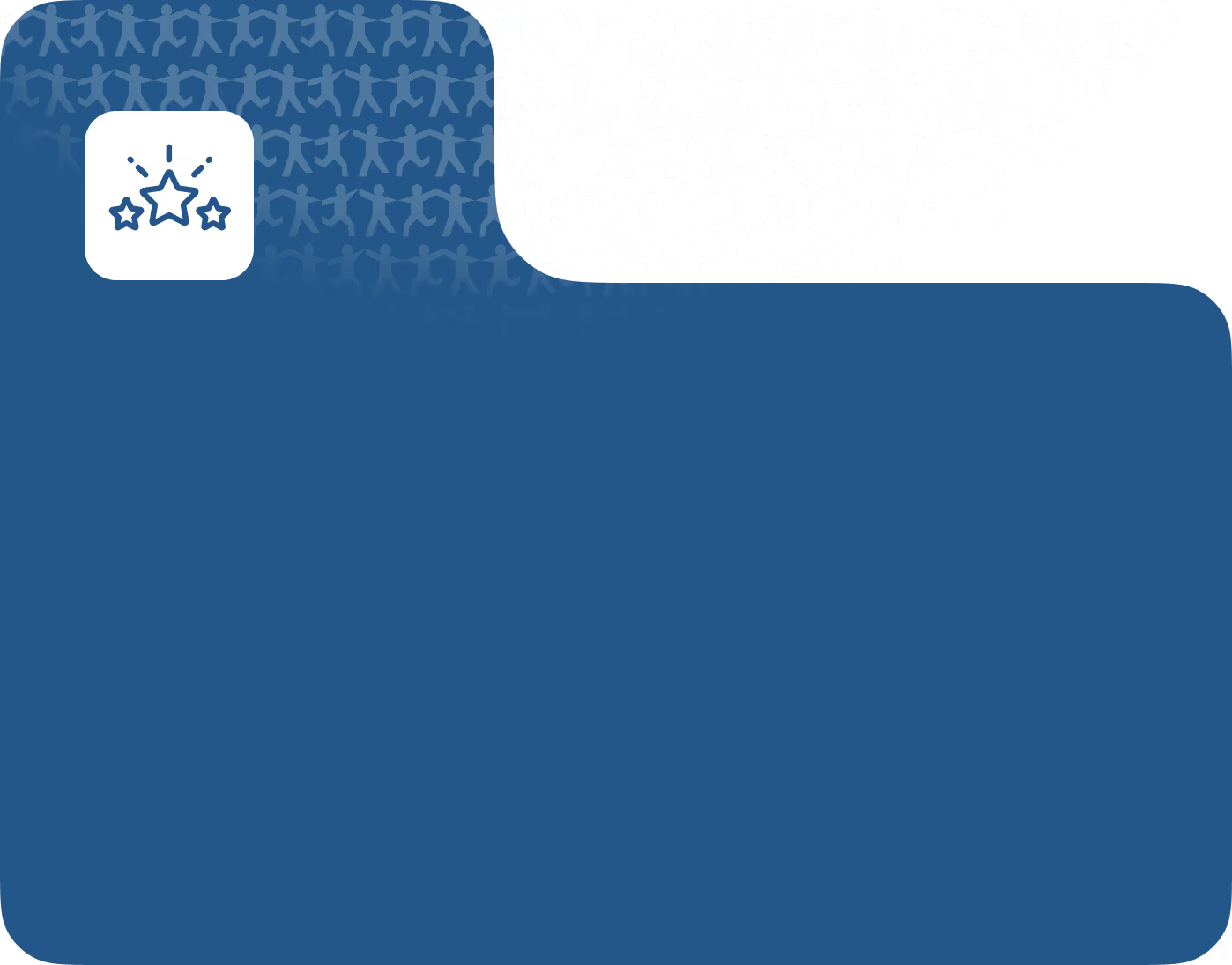

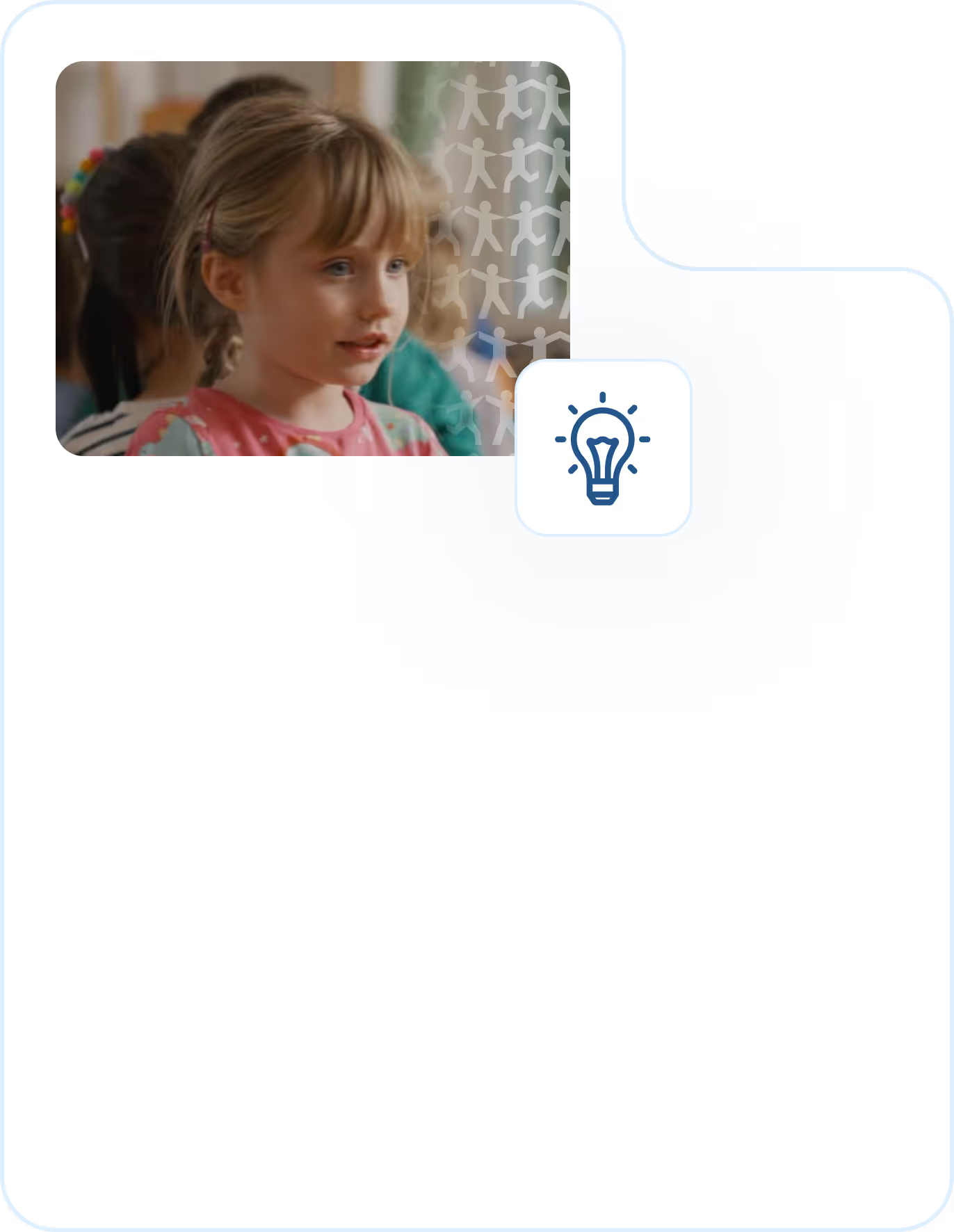
.avif)
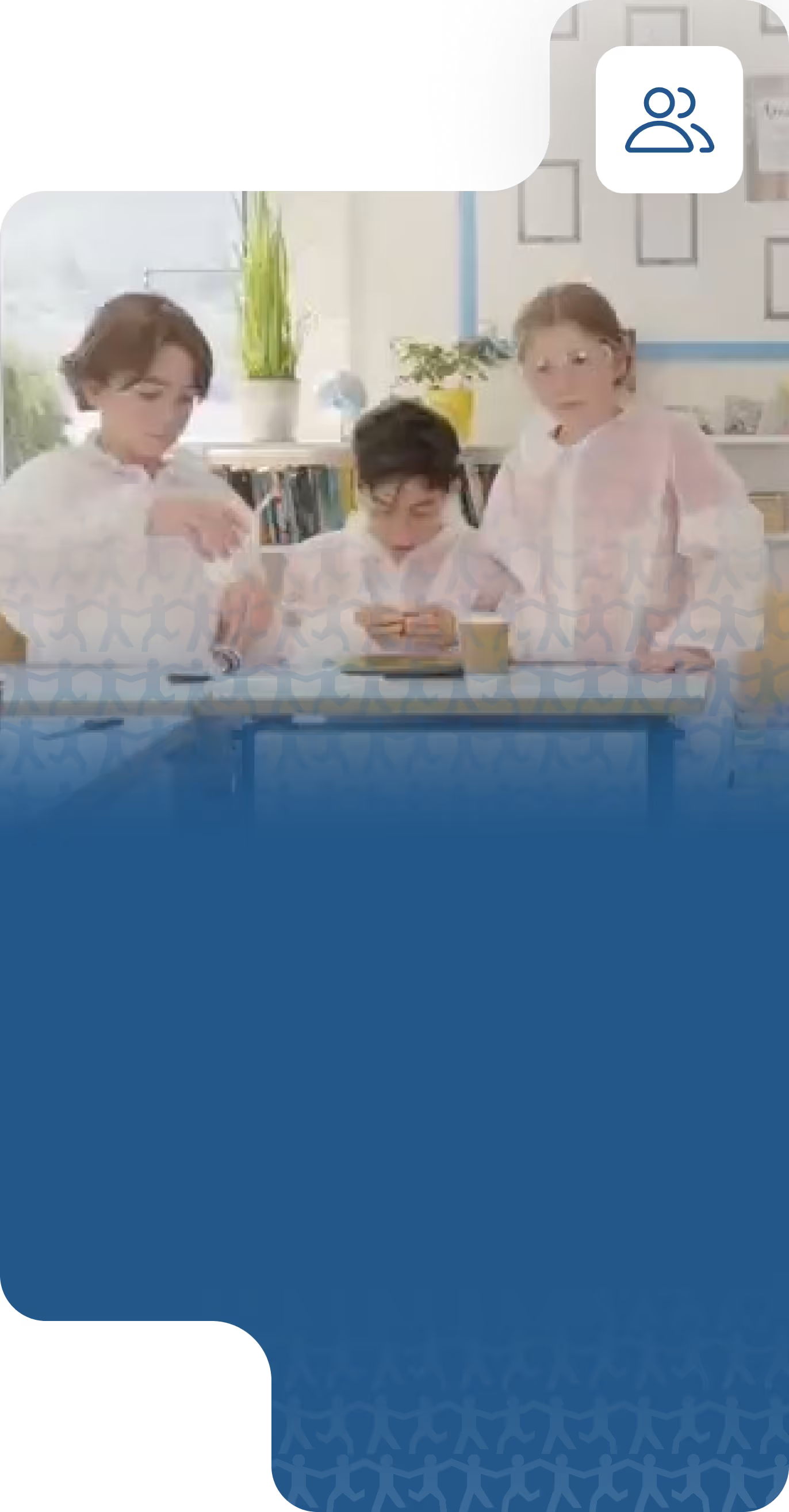
.avif)
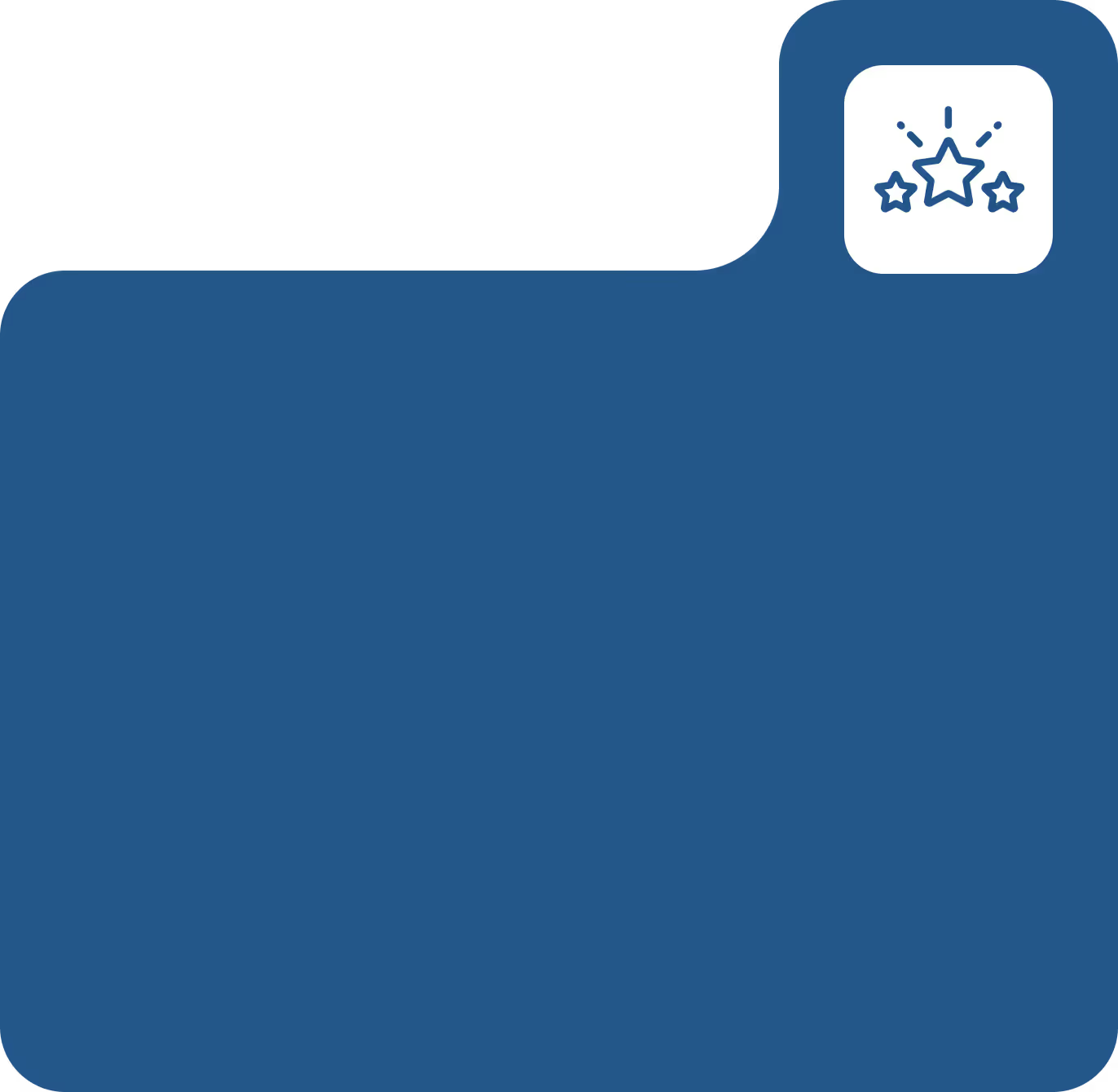
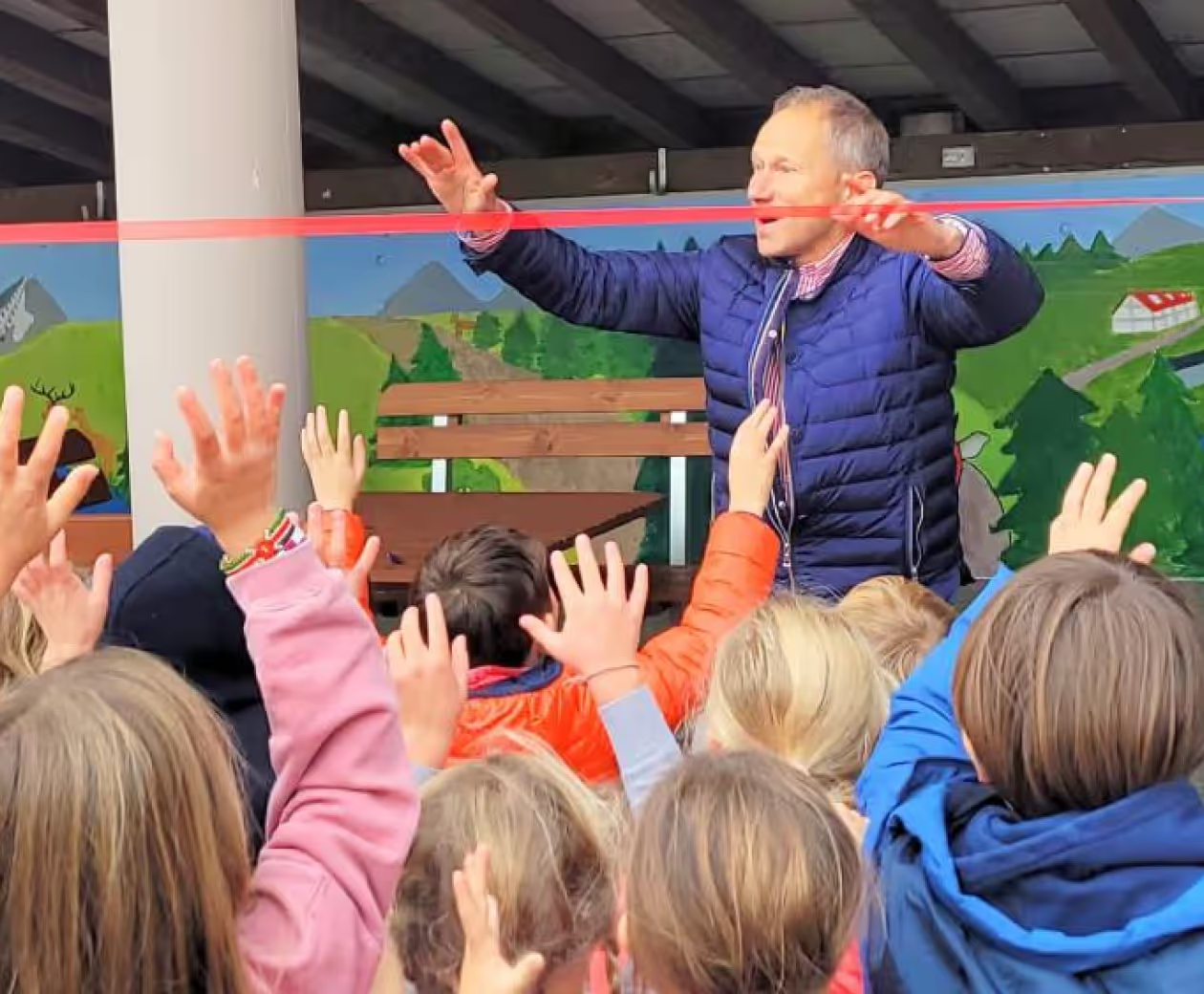
Special Days that make Learning at Lakeside School Memorable
We playfully explore the world on regular excursions and afternoons or full days in the woods. Two weekly physical education classes enrich our curriculum — in Horgen in our gym hall and in Küsnacht in the auditorium. Events for the entire school are hosted several times throughout the year. Examples include Sports Day, Advent Singing, Welcome Apéro, Easter Breakfast, or the Children’s Party, as well as Project Weeks.
Before and After School Care for Kindergarteners
Outside of kindergarten hours, you can book various before and after school care options. You can also leave your child in our care during lunch on half-days. Our hot lunch offer guarantees a healthy, balanced meal with local, fresh, and organic ingredients.
Our carefully selected external partners offer various after school clubs at our campus, ranging from sports such as Kung Fu and gymnastics to coding club and acting classes.
In addition, we are happy to care for your child during four weeks of the school holidays!
.avif)
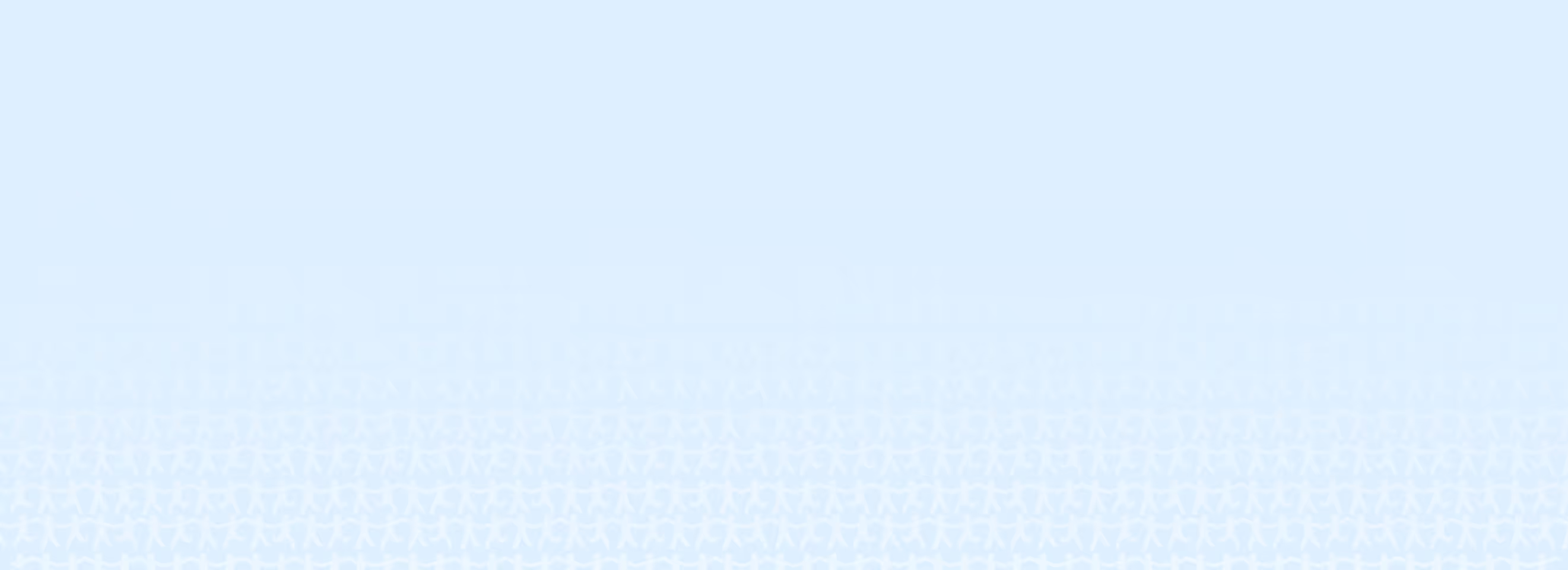
We are here for you

Register your child online for our Early Years Programmes or contact us to enquire about our waiting lists. We are happy to answer any questions.
Frequently Asked Questions & Answers
Can I send my child to Pre-Kindergarten for only some days per week?

Yes, anything is possible between 4 half days (4 mornings or 2 full days or 1 full day and 2 mornings) and a full-time programme. Only single afternoons are not possible.
Are there entry fees?

Registration fee CHF 500.-, school fund CHF 1'000.-, deposit: 1st child CHF 2'000.-, 2nd child CHF 1'000.- from 3rd child CHF 500.-.
Is an enrolment possible at any time?

Yes, as long as your child is 3 years old and diaper-free. If your child joins during the school year, official Pre-Kindergarten begins the following year. This ensures regular entry into the school system.
Are there any language prerequisites for Pre-Kindergarten?

If your child only speaks English or only speaks German, it is possible for them to be enrolled in our Kindergarten. If your child only speaks a language other than English or German, enrolment is possible up to Kindergarten 1. Our immersive bilingual model at Kindergarten level is designed to provide a solid foundation which allows for a smooth transition into our Primary School.
How does the introduction period work?

We do not have a fixed procedure. The Pre-Kindergarten teachers discuss this directly with the parents, as each child has different needs.
Do siblings get a discount?

Yes, the second child receives a reduction of 5% on the school fees. The 3rd child or more receives a reduction of 10%.
How do bilingual classes work?

In Pre-Kindergarten, each class has one English and one German-speaking class teacher teaching together. Like in a bilingual family, children are simultaneously exposed to both languages.
Why should your child attend a bilingual Pre-Kindergarten?

A bilingual education from the early years comes with various advantages that last a lifetime. Being able to acquire both English and German like a native speaker is clearly the largest advantage. Even if a child transitions to a monolingual education system after Primary School, the acquired language stays with them for the rest of their life. Additionally, research suggests that the brain of a bilingual learner forms differently and fosters skills such as adaptability and cultural competency, allowing one to make conceptual connections more easily.
Additional Questions? Contact Us.



































